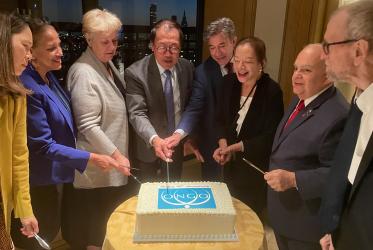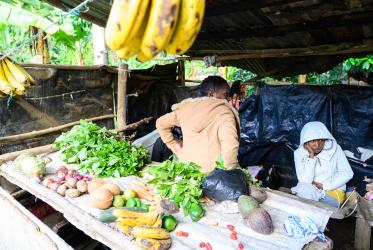Displaying 1 - 20 of 484
Redes de la sociedad civil en VIH y SIDA y actores religiosos
Lecciones aprendidas del involucramiento estratégico en la India, República Dominicana, Indonesia y Jamaica
07 February 2023
As Bethlehem prepares for Christmas, ‘it’s all about community’
08 December 2022
Alors que Bethléem prépare Noël, «tout est dans la communauté»
06 December 2022










